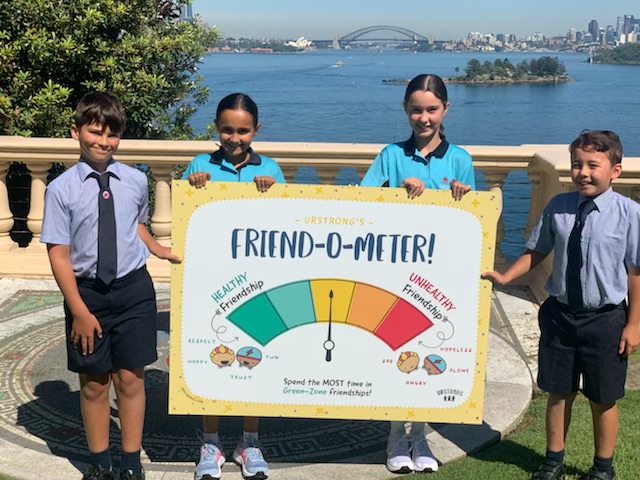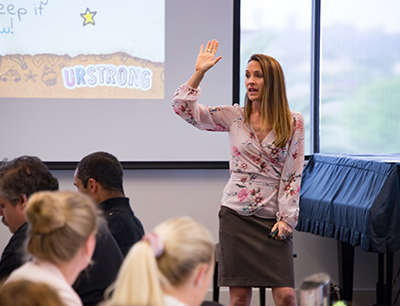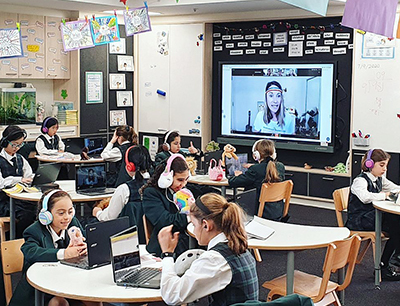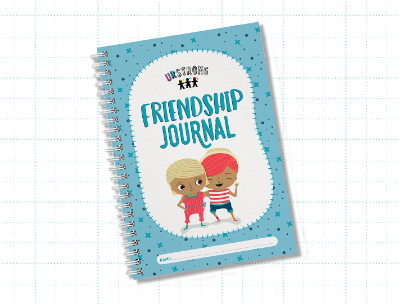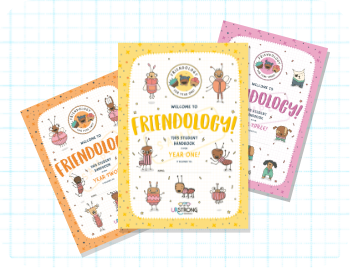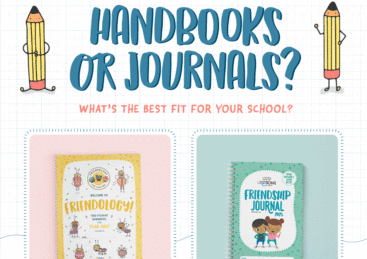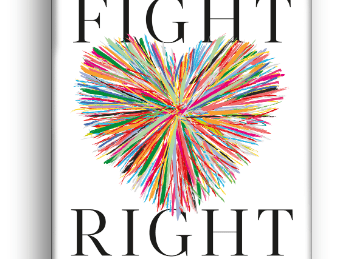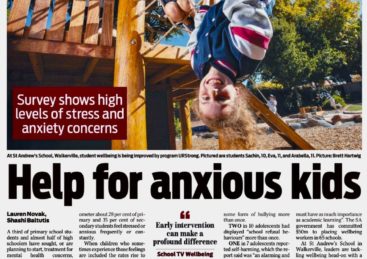Doctor’s Orders: Show Your Child How to Make Friendships a Priority!

November 10, 2023: I was recently interviewed for an article in Wellbeing Magazine on making friends as an adult. Despite my research focusing on childhood friendships, this isn’t the first time I’ve been interviewed on adult friendships and it’s really no surpise…we are in the midst of, what many people are calling, a Friendship Recession. People have far fewer friends than they did in the past and, in a recent study, nearly 1 in 10 Americans report having NO CLOSE FRIENDS at all. (How sad is that?) In Australia, research shows that 1 in 3 people report feeling lonely and, surprisingly, kids who are fresh out of high school are suffering the most. Our world is facing a loneliness epidemic.
Earlier this year, the US Surgeon General, Dr Vivek Murthy, raised the alarm on this global issue calling loneliness and social isolation a public health crisis. In his Advisory on the Healthy Effects of Social Connection and Community, Dr Murthy states:”“Given the significant health consequences of loneliness and isolation, we must prioritize building social connection the same way we have prioritized other critical public health issues such as tobacco, obesity, and substance use disorders.” America’s doctor has spoken: Feel-good friendships are essential for our health and wellbeing.
So, how can we help our children build healthy, lasting social connections?
Through our Friendology curriculum, our URSTRONG Schools teach children a whole new language for creating and maintaining friendships. They learn how to make friends, how to have conversations, how to build friendships that centre on trust and respect, the difference between Fitting-In and Belonging, how to keep their friendships in the Green-Zone on The Friend-o-Meter…and so much more.
In addition to explicitly teaching friendship skills in schools (the essence of our Friendology curriculum), modeling these skills is a really impactful way to light the path for children, showing them that friends are an integral part of life. It’s a win-win for everyone and normalizes the prioritization of friendship.
With this in mind, here are two very practical ways that parents and teachers can integrate friends into daily routines and show children how to ‘do’ friendship when they grow-up:
- BE AN INVITER: In our Friendology curriculum, we teach children to not wait for an invitation – we encourage them to “Be an Inviter!” This approach is just as relevant and impactful in adulthood. Rather than waiting for your friend to set up the next dinner party or invite you over for tea, take the bull by the horns and reach out to them. Consider what you need in your friendships.
🙂 Do you prefer one-on-one time and deep chats? If so, invite a friend to join you for a walk or meet at a new cafe or cocktail bar you’ve been wanting to try out.🙂 Do you prefer side-by-side friendships (a term coined by Dr Paul Wright, where friends are engaging in an activity together, as opposed to face-to-face)? Invite them to explore the Farmer’s Market with you, or book in at the same yoga class, or hit the gym together.
🙂 Is FUN important to you in your friendships? If so, invite them to join you doing something adventurous – a hike, live music, local BINGO night…look up events in your area.
🙂 Prefer to be in a group? Organize a Sunday afternoon street hockey game or invite them to watch the AFL game at a pub.
The point is: Consider what fills you up in your friendships and MAKE IT HAPPEN! - DROP AN ANCHOR: Research shows that consistency is an important element in forming deep, connected friendships. Psychologists refer to this as the mere exposure effect – just spending time with people regularly builds trust and a sense of familiarity. This is among the many reasons children and teenagers form such close, often lifelong friendships – they see their friends at school every single day. In adulthood, this also explains why people often form friendships with work colleagues.
So, if you want to make a new friend or deepen a friendship, drop an anchor by popping regular interactions in your calendar. For example, set a coffee date every Saturday morning, sign up for Book Club together, or join a sports team together. The idea is that these experiences are consistent and often. Research shows that just 11 meaningful hangouts (about 34 hours!) is enough to move from new friends to true friends!
Children learn so much from just watching us adults and how we do life. Show your child how to prioritize friendship so they can live a meaningful life, full of connection and community. But, please remember: When it comes to friendship, quality is far more important than quantity. We all deserve healthy, Green-Zone friendships, so make sure you are not just showing your child how to prioritize friendship in their lives – but they see you surrounding yourself with friendships that centre on trust and respect.
Written by: Dana Kerford
Founder & Friendship Expert
P.S. We were thrilled to received an email from the Office of the Surgeon General acknowledging the global impact of friendship skills at our amazing URSTRONG Schools, stating: “We’re grateful for your dedication and passion in tackling loneliness and improving youth mental health… Initiatives such as yours are imperative as everyone has a role to play to strengthen the social fabric of our nation. We thank you for your incredible work in this space!”

